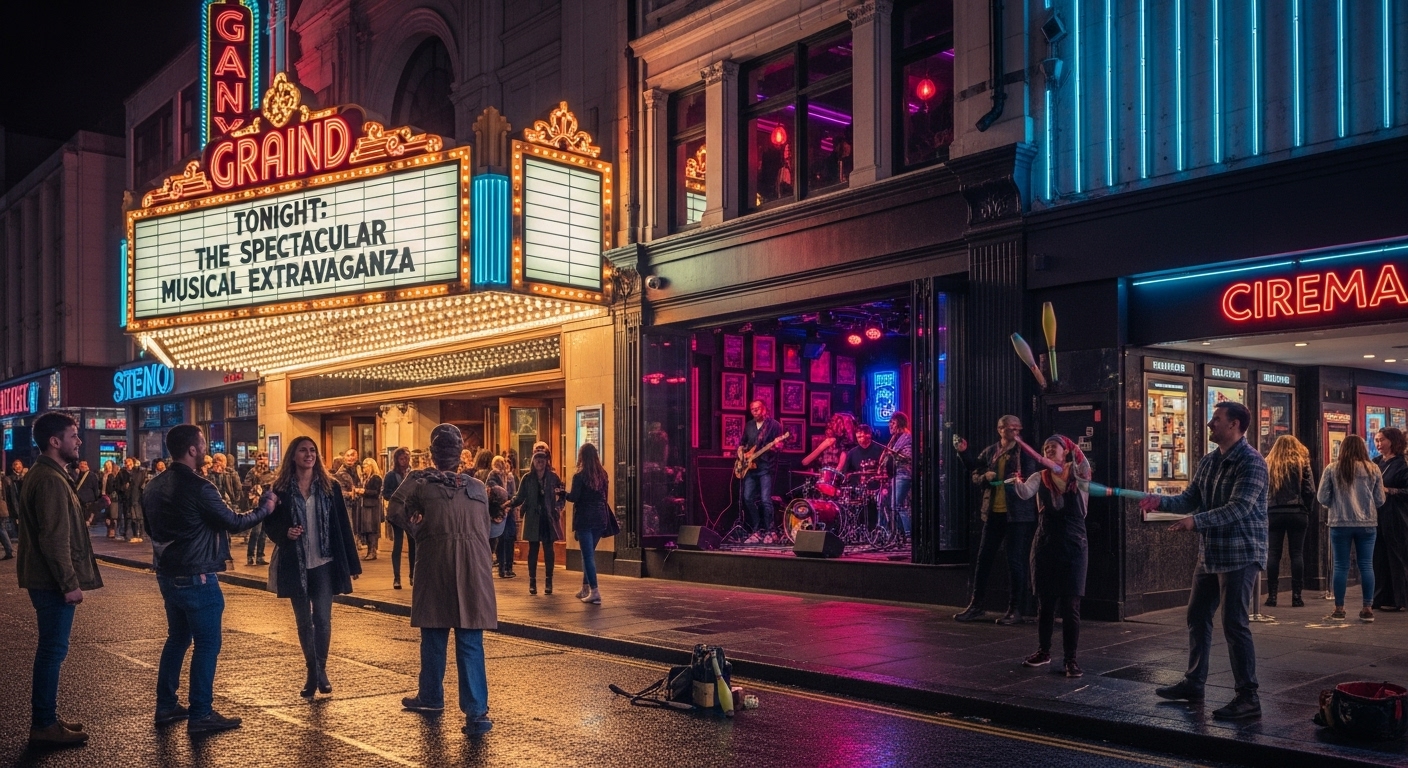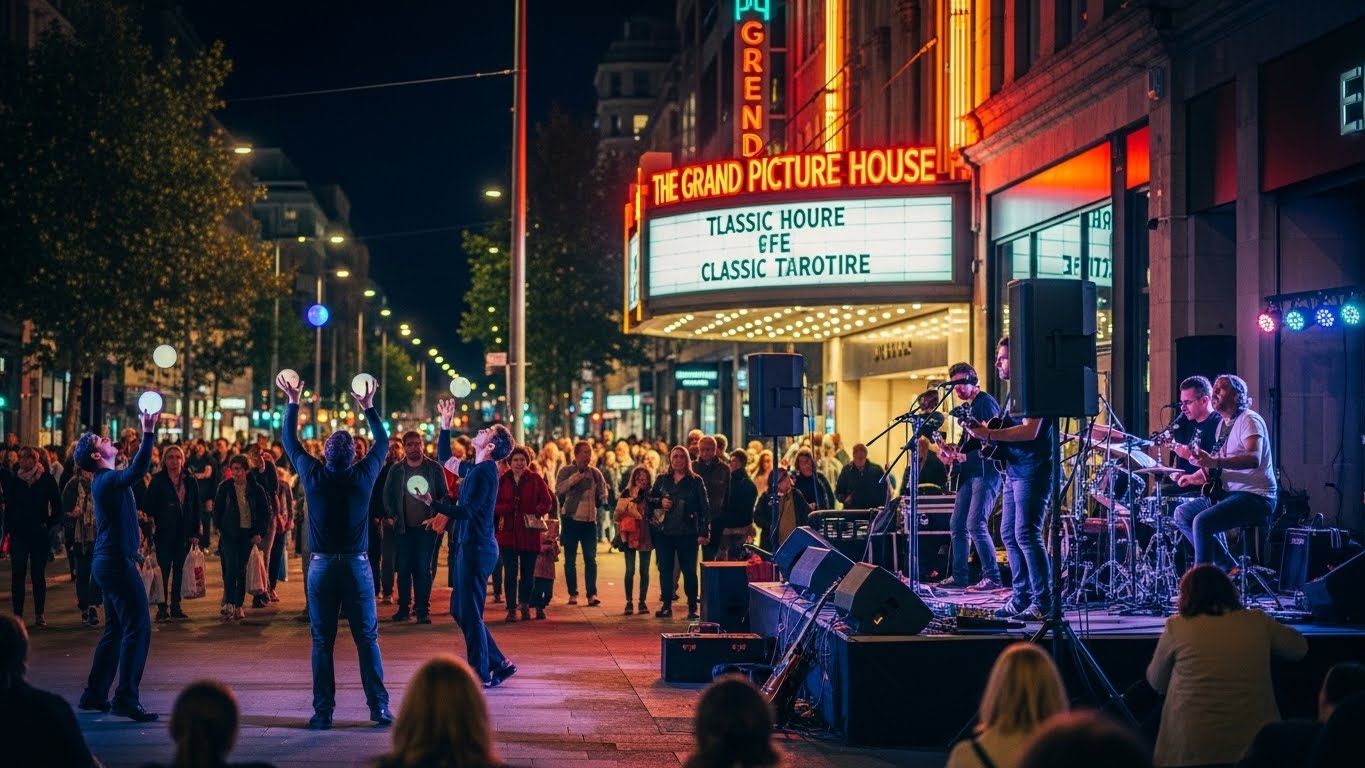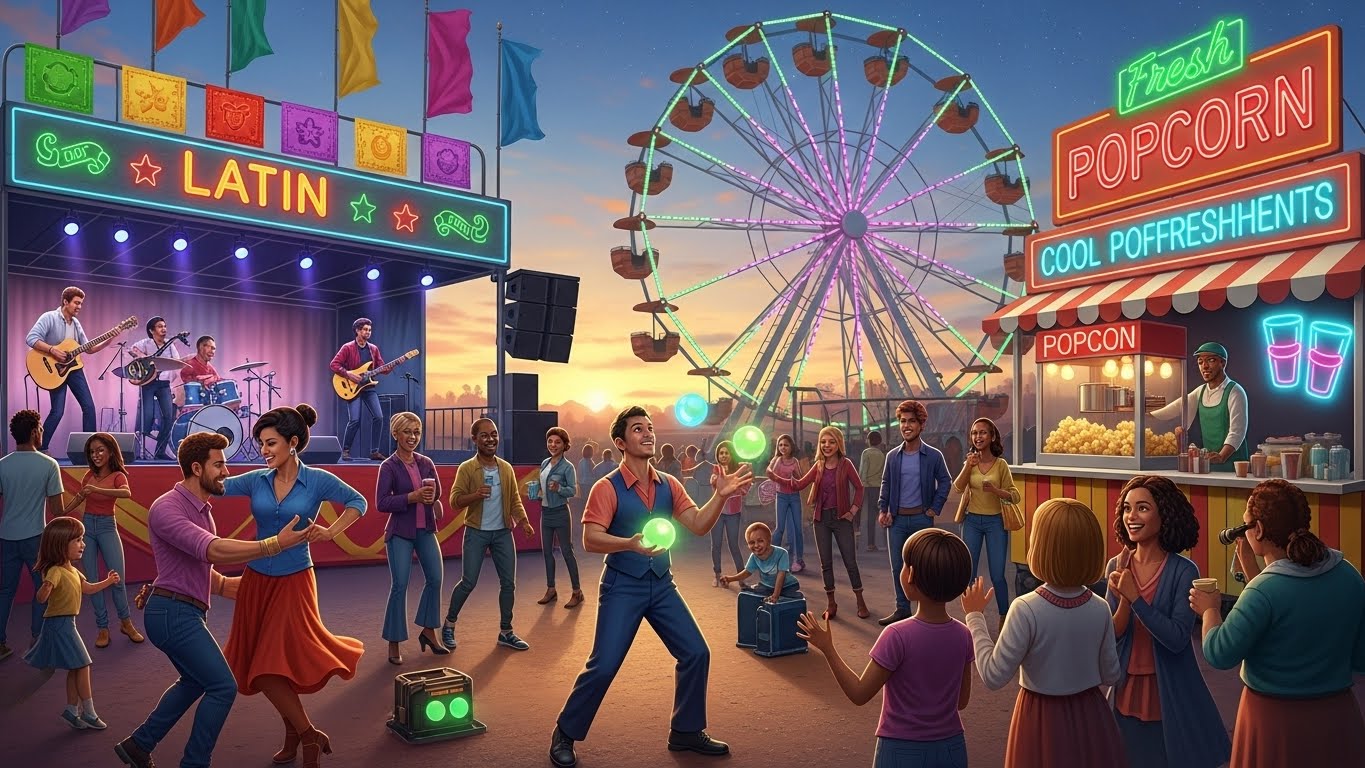Entertainment is one of the most important aspects of human life. From the earliest days of civilization to the modern digital age, people have always searched for ways to escape daily struggles, find joy, and experience creativity through different forms of art and leisure. Whether it is music, cinema, television, gaming, theater, or social media, entertainment continues to evolve with every passing decade, offering people both relaxation and excitement. In this blog, we will explore the world of entertainment in detail, its history, modern trends, impact on society, and what the future may hold.
The Origins of Entertainment
Entertainment is as old as human history. Ancient civilizations used stories, dance, music, and plays to express themselves and bring communities together. In Egypt, people enjoyed theatrical performances and storytelling. In Greece, theaters were built where tragedies and comedies were performed for large audiences. In Rome, gladiator games and circus performances were among the most famous forms of public entertainment.
Even in early tribal societies, entertainment existed in the form of rituals, festivals, and folklore. These gatherings not only provided amusement but also helped communities pass down traditions, values, and history from one generation to another.
The Evolution of Theater and Drama
Theater became one of the earliest structured forms of entertainment. The Greeks perfected the art of drama, where plays written by authors like Sophocles and Euripides shaped storytelling traditions. Later, during the Renaissance, theater reached a golden age with the works of William Shakespeare in England. His plays brought together elements of tragedy, comedy, and romance, making theater a central form of entertainment for both royalty and commoners.
Over time, theater expanded into opera, musicals, and modern stage productions. Today, Broadway and West End productions are globally recognized, attracting audiences from around the world. Theater remains an essential part of entertainment because it combines live performance, music, dance, and storytelling in a way that no other medium can replicate.
The Rise of Cinema
Cinema is perhaps one of the most revolutionary forms of entertainment. In the late 19th century, moving pictures were invented, and by the early 20th century, films had become a cultural phenomenon. Silent movies with stars like Charlie Chaplin and Buster Keaton made audiences laugh and cry without the need for dialogue.
When sound was introduced in films during the 1920s, cinema reached new heights. Hollywood became the hub of filmmaking, producing timeless classics and creating movie stars who gained worldwide fame. By the mid-20th century, color films and advanced production techniques had transformed cinema into the most popular entertainment industry.
Today, films are produced globally, with Bollywood in India, Nollywood in Nigeria, and other film industries making their mark. Movies not only entertain but also reflect cultural values, address social issues, and influence fashion, music, and language.
The Golden Age of Television
Television changed the way people consumed entertainment. When it became popular in the 1950s, families gathered around their TV sets to watch shows, news, and live events. Television quickly became the centerpiece of family entertainment. Sitcoms, dramas, variety shows, and game shows entertained millions of households.
In the later decades, television networks expanded to offer hundreds of channels, covering every possible genre from sports to cooking to travel. The arrival of cable television and satellite broadcasting brought even more options, making TV an essential part of everyday life.
Even today, despite the rise of digital platforms, television remains a dominant source of entertainment, especially for live events like award shows, sports championships, and reality competitions.
Music as Universal Entertainment
Music is perhaps the most universal form of entertainment, transcending languages and cultures. From traditional folk music to classical symphonies, from rock and pop to hip-hop and electronic beats, music offers something for everyone.
In ancient times, music was often tied to religious rituals and community gatherings. Later, during the classical era, composers like Mozart and Beethoven created masterpieces that still influence music today. With the invention of recording technology in the 20th century, music became accessible to everyone. The radio, cassette tapes, CDs, and eventually digital platforms made music available anytime, anywhere.
Concerts and live performances remain a major form of entertainment, allowing fans to connect with their favorite artists on a personal level. Music festivals, from small local gatherings to massive international events, bring together thousands of people to celebrate sound, culture, and creativity.
Sports as Entertainment
Sports have always been more than just physical activity. They are a powerful form of entertainment, attracting billions of viewers worldwide. From ancient Olympic Games in Greece to modern football leagues and international tournaments like the World Cup, sports unite people in passion and excitement.
Athletes often become global icons, admired not only for their talent but also for their determination and discipline. Sports entertainment includes live games, e-sports, wrestling, and even extreme sports, giving fans countless options to watch and support their favorite teams and individuals.
Sports are not only entertaining but also promote teamwork, discipline, and national pride. They often bring countries together and sometimes even heal political or cultural divides.
The Digital Revolution in Entertainment
The digital age has completely transformed entertainment. The internet has given rise to streaming platforms, online gaming, virtual concerts, and social media content. Instead of waiting for TV broadcasts or going to theaters, people now have entertainment at their fingertips.
Streaming services allow viewers to watch movies, dramas, and documentaries on-demand. Online platforms have created a new generation of content creators who entertain millions through vlogs, comedy skits, music covers, and live streams. Gaming has become a billion-dollar industry, with online multiplayer games creating global communities of players.
The digital revolution has also changed how artists and performers reach their audiences. Social media provides direct interaction between celebrities and fans, making entertainment more personal and interactive than ever before.
Celebrity Culture and Entertainment
Entertainment has also given rise to celebrity culture. From film stars and musicians to athletes and influencers, celebrities shape trends and inspire millions of fans. People look up to them for fashion, lifestyle, and even social values.
While celebrity culture has positive aspects, such as motivation and inspiration, it also has its challenges. The constant spotlight and public scrutiny can sometimes affect the personal lives of entertainers. However, celebrity culture remains a major part of the entertainment world, influencing everything from fashion to politics.
The Role of Technology in Modern Entertainment
Technology continues to redefine entertainment every day. Virtual reality and augmented reality are offering immersive experiences where people can feel part of the story. Artificial intelligence is being used to create music, edit films, and even produce realistic video games.
Smartphones and tablets have become personal entertainment hubs, allowing people to watch movies, listen to music, play games, and interact on social media all in one place. The speed of technological progress ensures that entertainment will continue to become more interactive, personalized, and engaging in the future.
The Social Impact of Entertainment
Entertainment is not just about fun. It plays an important role in shaping society. Films and music often highlight social issues, raising awareness and inspiring change. Television shows reflect cultural values and influence lifestyles. Sports create unity, while online entertainment provides platforms for voices that were previously unheard.
However, entertainment also has its criticisms. Excessive exposure to digital platforms can lead to reduced physical activity, shorter attention spans, and even addiction. The portrayal of unrealistic lifestyles in movies and social media sometimes creates pressure on individuals. Therefore, balance is necessary to enjoy entertainment without negative consequences.
The Future of Entertainment
The future of entertainment is promising and exciting. With the advancement of artificial intelligence, virtual reality, and interactive storytelling, audiences will experience more personalized and immersive content. Holographic concerts, fully interactive films, and virtual sports tournaments may become common.
Streaming will continue to dominate, but new platforms will emerge to give creators more freedom and audiences more control over their experiences. The boundaries between entertainment forms will blur, as films, music, gaming, and social media combine into unified experiences.
Conclusion
Entertainment is a vital part of human life that has continuously evolved from ancient traditions to the digital age. It reflects culture, inspires creativity, provides relaxation, and connects people across the globe. Whether it is through music, cinema, television, gaming, sports, or social media, entertainment remains an endless source of joy and inspiration.
As technology advances, entertainment will continue to transform, offering new ways to engage and experience the world around us. No matter how it evolves, one thing is certain: the human desire for entertainment will never fade.



